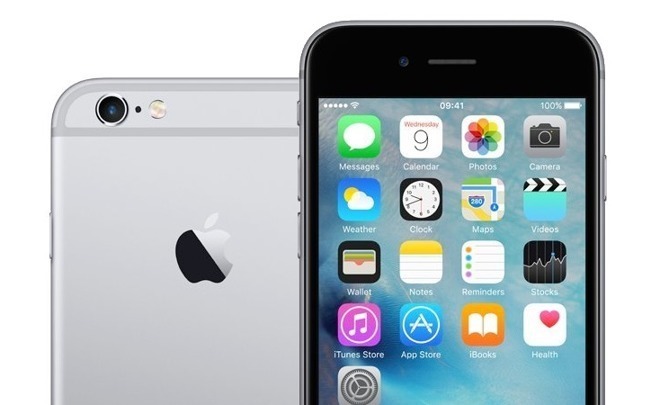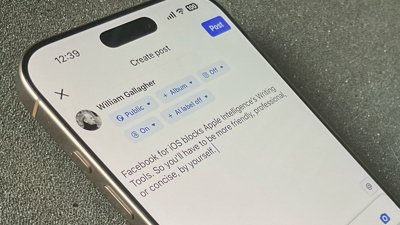Hagens Berman, the consumer rights law firm that successfully obtained a $450 million settlement from Apple over e-book price fixing, once again has the tech giant in its sights, and on Friday filed a class-action lawsuit over the iPhone throttling debacle.
In a suit filed with the U.S. District Court for the Northern District of California, Hagens Berman alleges Apple secretly installed a feature on customer iPhones to intentionally slow down processor performance.
The complaint, which names New York resident John Solak as a plaintiff, seeks damages for performance degradation as a result of multiple iOS updates dating back to iOS 10.2.1. Further, compensation is sought for existing iPhone owners who purchased a new device to "alleviate Apple's secretive and unauthorized slowdown" of older hardware.
In December, a Reddit user detailed what appeared to be evidence of CPU throttling on iPhones with degraded batteries. Multiple iPhone owners came forward with system benchmarks tests that showed higher scores after a device's battery was replaced, suggesting Apple throttles performance without user knowledge. The revelations fueled a years-old conspiracy theory that Apple intentionally slows down older iPhone models in order to sell new units to upgraders.
Certain findings were backed up by Geekbench's John Poole, who found a correlation between iPhone slowdowns, battery age and, importantly, iOS version. Specifically, Poole was able to plot a noticeable change in benchmark scores between iOS 10.2 and iOS 10.2.1.
As public forums cried foul, Apple responded by confirming that iOS temporarily slows down processor-intensive tasks on older iPhones with degraded batteries in an effort to keep those devices operating smoothly.
"Last year we released a feature for iPhone 6, iPhone 6s and iPhone SE to smooth out the instantaneous peaks only when needed to prevent the device from unexpectedly shutting down during these conditions. We've now extended that feature to iPhone 7 with iOS 11.2, and plan to add support for other products in the future," Apple said, referring to the iOS 10.2.1 update released in 2016.
The statement was taken by some as an admission of guilt. As such, disgruntled customers began filing class-action lawsuits against the company to recoup lost expenses, the first of which was filed one day after Apple's response.
"It wasn't until Apple was faced with consumer outcry and bad press that it finally chose to come clean about its secretive installation of performance-limiting software on millions of iPhones," Steve Berman, managing partner of Hagens Berman, said in a statement. "To add insult to injury, Apple's answer to its loyal customers is Pay us $29 for a replacement battery to fix our covered-up slowdown.' Consumers deserve a better answer."
Following consumer blowback, Apple penned an open letter to its customers apologizing for not communicating the feature or its potential ramifications to iPhone owners. As a consolation the company dropped the price of out-of-warranty battery replacements from $79 to $29, and will issue a software update in the coming months that will provide users with more information about the health of their device's battery.
Today's suit is the latest in a growing pile of about 30 class-action complaints filed across the U.S. Alongside the Hagens Berman suit, at least three cases were lodged in California and New York courts on Friday alone.
Hagens Berman has dedicated an informational webpage to its iPhone slowdown suit where owners of iPhone 6, 6 Plus, 6s, 6s Plus and SE devices can sign on to the case.
The law firm went up against Apple in 2014 over the company's e-book pricing strategy.
In 2013, the company was investigating, then sued, by the U.S. Department of Justice for employing so-called "agency model" pricing on e-book sales, which operates on a "most favored nations" basis that restricts content owners from selling the same product to a another retailer at a lower price. Apple was ultimately found guilty of colluding with major book publishers to falsely inflate the price of e-books sold on the iBooks Store.
Hagens Berman handled a separate class-action on behalf of consumers and citizens of 33 U.S. states and territories represented by state attorneys general. The firm achieved a $450 million settlement that was paid out in 2015.
 Mikey Campbell
Mikey Campbell







-m.jpg)






 Malcolm Owen
Malcolm Owen
 William Gallagher
William Gallagher

 Andrew O'Hara
Andrew O'Hara
 Wesley Hilliard
Wesley Hilliard


 Marko Zivkovic
Marko Zivkovic




-m.jpg)




179 Comments
Well, it’s a good thing somebody didn’t spill hot coffee onto their lap as well.
1. Capacity depleted up to 20% of design should not fail to deliver peak power required by the iPhone;
2. Running down to 30% energy left after a full charge will still provide peak power required by any iPhone;
3. Not mentioned by any battery-gate article editors that all lithium-ion batteries have their own circuit processors managing the batteries. It should not be the iOS business to throttle it.
4. iOS should not “assume” all batteries of the same age depleting at the same rate by the iPhone model, iOS version or the time-stamp of the battery on the iPhone and throttle the iPhones accordingly!
Batteries are much more complex than these bafoons know. Hopefully , Apple will make the right case & the judge will come out in favor of Apple.